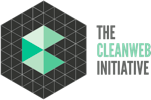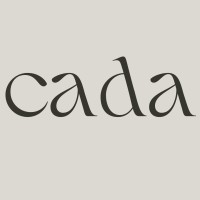These days, being self-employed is less of a dream and more of a reality for more and more people.
But with the self-employment tax at a rate of 15.3%, you’re often losing more money than you’re making.
Have no fear, self-employed people, because we’re presenting you with this guide to everything you need to know about your tax rights.
Ready to find out how to avoid paying self-employment tax on your income? Keep reading and we’ll show you.
What is Self Employment Tax?
When tax season comes around, traditionally employed workers have it easy. The only information they need to file taxes is the previous year’s income.
For you, it’s not so simple.
You have to calculate your income, determine the percentage of that income going to self-employment taxes, and understand additional taxations for certain income brackets. A paystub machine like the ones at paystubcreator.net can help you determine your income, but for these other factors, a little calculation will be necessary.
In addition to your regular income tax, you also owe a percentage of your taxable income. Regular employees pay the FICA tax and you pay a self-employment tax. But while employers tend to cover the FICA tax for their employees, you’re responsible for paying the self-employment tax.
These two amounts may be called by different names but they both consist of the Medicare and Social Security tax.
The Medicare tax supports free and inexpensive health care for underprivileged and elderly citizens. Currently, self-employed workers pay around 2.9% in Medicare taxes as a percentage of your net earnings.
Similarly, the Social Security tax goes to elderly and disabled citizens who receive assistance from the government. The rate of the Social Security tax in 2019 is 12.4% of your self-employed income.
Self-employed individuals who make more than $125,000 and $250,000 filing separately or jointly, respectively and $200,000 as a single individual must pay additional Medicare taxes.
Don’t know how to compute all these amounts? Not to worry because your 1040 Schedule SE tax form will help you out. But first, you need to understand how to reduce your taxable income to avoid paying self-employment tax rates that are through the roof.
How to Avoid Paying Self Employment Tax
While most self-employed individuals can’t avoid the self-employment tax entirely, you can certainly reduce the percentage you have to pay. Here’s how:
The self-employment tax is based on your net income. So it stands to reason that reducing the net income you report on your taxes will reduce the percentage you pay in self-employment taxes.
But how do you reduce your taxable income?
When filing your taxes, a Schedule C form will help you calculate your net income from self-employment. Filling out this form carefully is of the utmost importance to paying fewer taxes. And subtracting as many business expenses as possible is how you keep your taxable income as low as possible.
You can deduct business expenses like office space rent, business-related subscription expenses, and even office supplies. But reducing your taxable income isn’t the only way to cut down your self-employment tax. You can also:
- Delay client payments until the new year
- Make business-related, deductible purchases before the end of the year
- Hire your kids for the Summer
- Donate to charities in exchange for a business advertisement
- Deduct your insurance premium
Finally, you may also want to consider forming an S-corp. This works to reduce your self-employment tax because your clients pay the S-corporation, not you directly. You then pay yourself a portion of this amount as income, meaning only some of your business income is taxable.
More Self Employed Tax Tips
Tax-savvy individuals are always finding new ways to avoid paying self-employment tax. Make sure you stay in the know to start saving money come tax season.
Looking for more tips and tricks for your small business? Check out Snelling’s top advice for self-employed people looking to save money on taxes.




